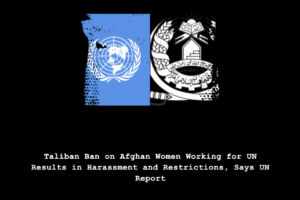
Badakhshan, Afghanistan – February 9, 2025
Kauser News Agency’s ground reporter has verified the alarming reports of an Islamic State Khorasan Province (ISKP) camp in the Argo district of Badakhshan. The camp houses 761 individuals, including 750 males and 11 girls, with most recruits being Urdu-speaking teenagers aged 14 to 19. This development highlights the rapid expansion of ISKP in northern Afghanistan, sparking grave concerns over the Taliban administration’s ability to counter this escalating threat.
Taliban Unable to Contain ISKP Expansion
Security experts warn that the Taliban, which has vowed to prevent Afghan soil from being used as a base for international terrorism, is struggling to defend against ISKP’s growing influence. Despite public commitments to maintaining national security, the Taliban lacks the resources, coordination, and regional support necessary to counter a group as organized and well-funded as ISKP.
“The Taliban may control vast territories, but their inability to enforce effective governance, especially in remote provinces like Badakhshan, has created a power vacuum,” said a regional security analyst. “ISKP has exploited this vacuum to establish operational bases and recruit vulnerable youth, particularly in underserved and impoverished areas.”
A Strategic and Ideological Challenge
ISKP’s establishment of a base in Argo highlights its intent to expand both geographically and ideologically. The camp’s significant number of Urdu-speaking recruits suggests cross-border involvement, likely drawing from Pakistan and other regional networks. This underscores the transnational nature of the threat, as ISKP positions itself as a competitor to the Taliban, not just militarily but ideologically.
The Taliban, already stretched thin by governance challenges and internal dissent, faces significant obstacles in combating ISKP. Unlike the Taliban, which relies heavily on traditional tribal structures, ISKP operates with a centralized and ruthless command structure, making it harder to infiltrate or dismantle.
Local and Regional Implications
The expansion of ISKP in Badakhshan poses serious risks to Afghanistan’s fragile stability and regional security. Badakhshan’s proximity to Tajikistan, China’s Xinjiang region, and Pakistan makes it a strategic location for extremist groups seeking to export terrorism beyond Afghanistan’s borders.
Locals in Argo district have expressed fear over the growing presence of ISKP, with many feeling abandoned by the Taliban administration. “The Taliban controls the cities, but here in the mountains, we are left to deal with this threat alone,” said a resident, who requested anonymity.
Calls for International Action
The Taliban’s struggles have prompted calls for regional and international collaboration to address the ISKP threat. Experts stress the need for a comprehensive counter-terrorism strategy that includes intelligence-sharing, enhanced border security, and targeted operations against ISKP leadership.
Additionally, tackling the root causes of radicalization—such as poverty, unemployment, and lack of education—remains critical to curbing the group’s ability to recruit young people. Without such measures, ISKP’s influence is likely to grow, further destabilizing Afghanistan and threatening its neighbors.
Kauser News Agency continues to monitor this evolving situation, providing verified updates and expert analysis.
#End
For more breaking news, stay connected with Kauser News Agency. https://kausernews.com/kauser-news-agency-a-call-for-support-and-donations/#google_vignette


